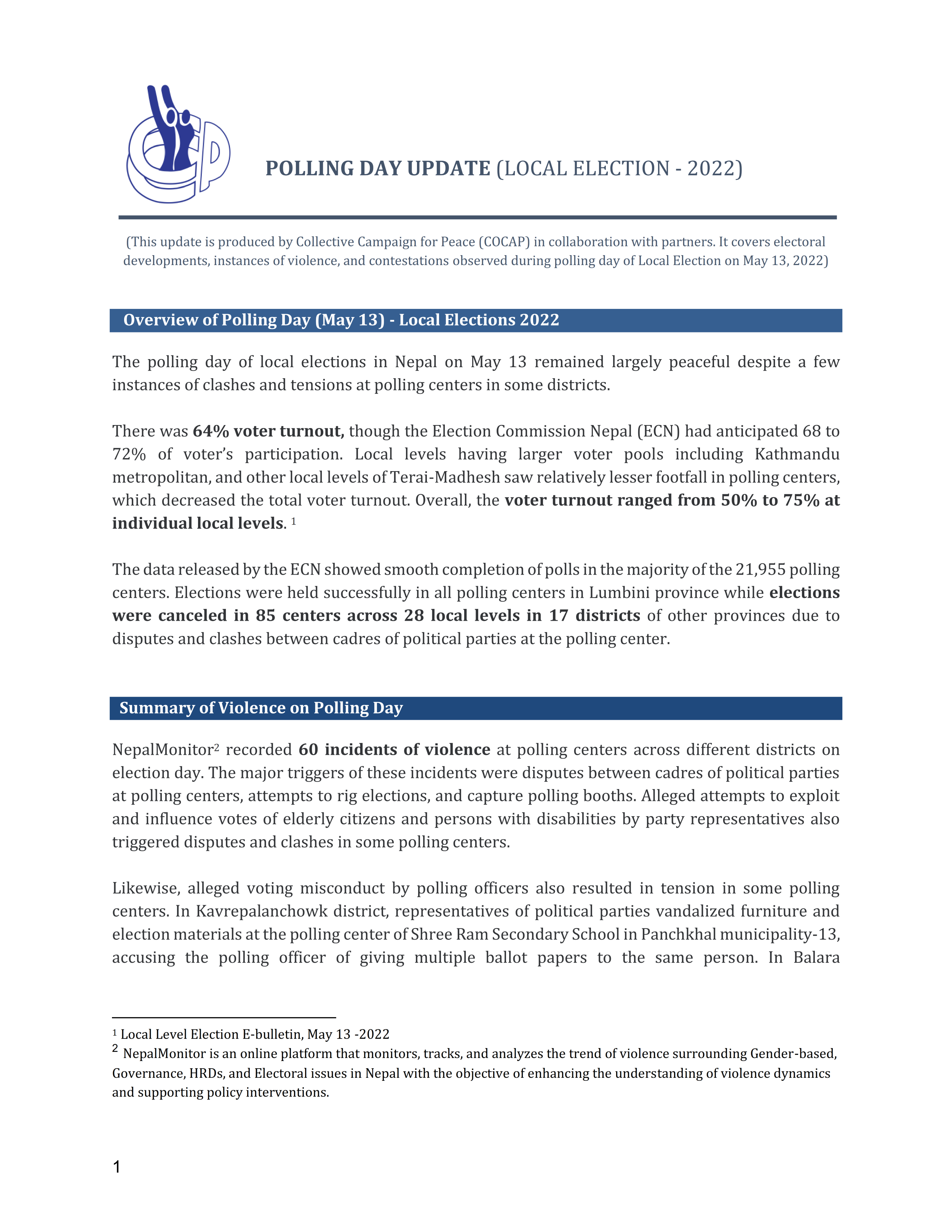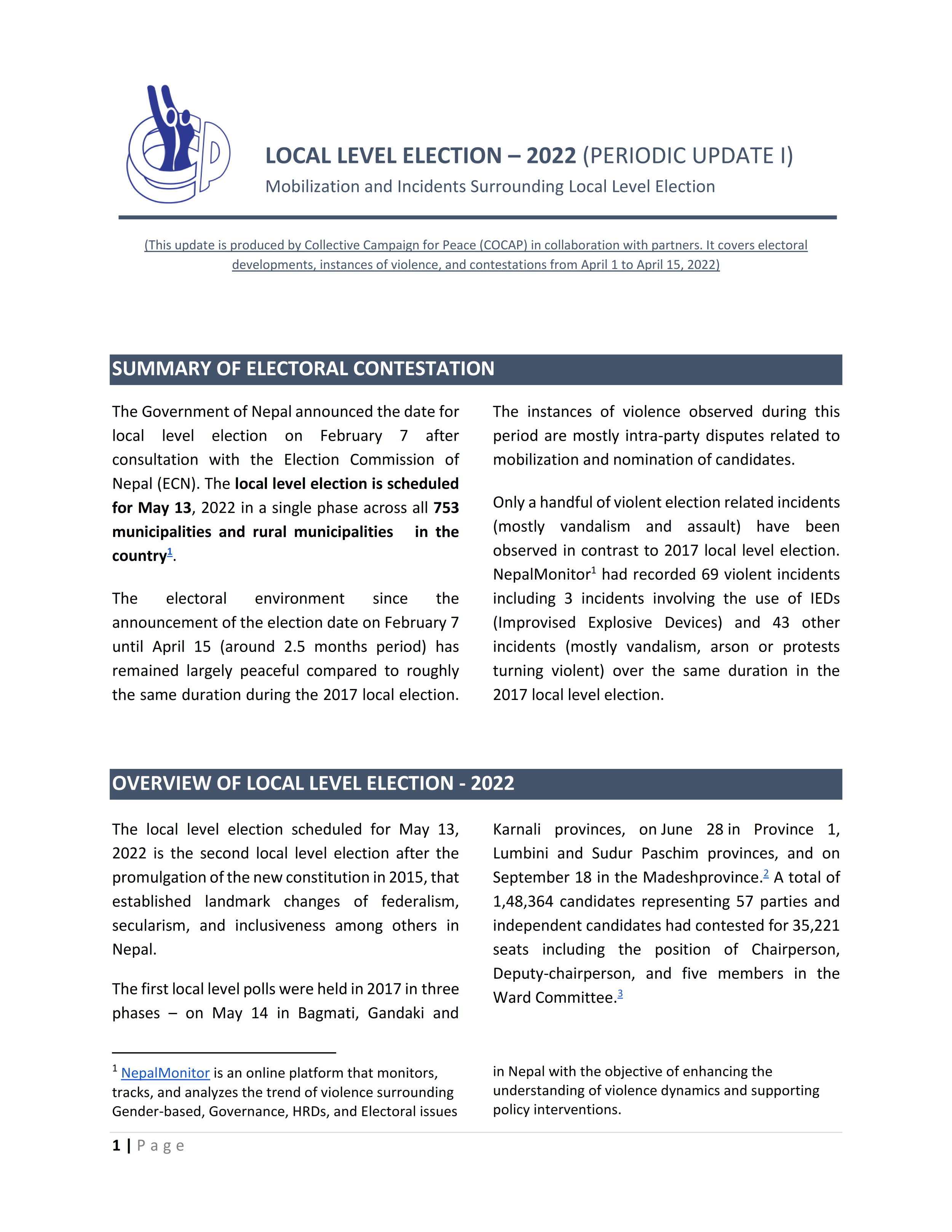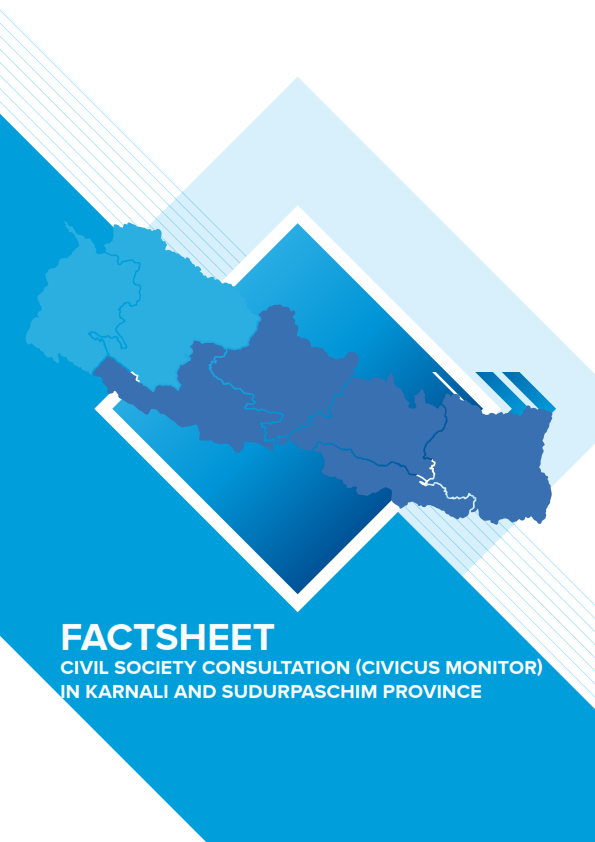Incident Reports
Supreme Court stays 16-pt deal enforcement
2015-06-20
Kathmandu/Jun 20, Sarwochcha adaalat dwara 4 dal bich bhayeko 16 bude sahamati karyanwoyan nagarna antarim adesh jaari.
In a major blow to the 16-point agreement , the Supreme Court on Friday issued an interim order, temporarily halting the implementation of the deal signed by four major political parties on June 8.
A single bench of Justice Girish Chandra Lal issued the order, directing the defendants not to implement the political pact until another ruling comes as per Articles 1, 82, and 138 of the Interim Constitution.
Four major political parties—Nepali Congress, CPN-UML, UCPN (Maoist) and Madhesi Janadhikar Forum-Loktantrik—had reached the agreement on the key contentious issues, paving the way for the promulgating a new constitution within a couple of months.
The ruling came in response to a writ filed by former Nepali ambassador to Denmark Vijaya Kant Karna and Rita Shah, a Madhesi activist, objecting to some clauses of the agreement.
The writ cited Article 138 of the constitution to argue that the issues of state restructuring—delineation of federal provinces, their number and names—should be decided by the Constituent Assembly before its dissolution.
The apex court said in its order that the constitution without the names and border of the provinces will contravene Articles 82 and 138 of the Interim Constitution. “The drafting of the new statute by violating the Interim Constitution may become disputable, affect the law and order situation, and invite conflict,” states the SC order.
Article 138 of the constitution and its clause say, “The boundaries, number, names and structures, as well as full details of autonomous provinces and the Centre and allocation of means, resources and powers shall be determined by the CA, while maintaining the sovereignty, unity and integrity of Nepal.”
Clause 3 of Article 138 states that the final settlement on the matters relating to state restructuring and the form of federal system of governance shall be as determined by the CA.
The apex court has warned that the defendants’ further step towards constitution writing is likely to cause an “irreparable loss” to the country. Similarly, Article 82 of the Interim Constitution says the business of the Constituent Assembly shall end on the day of the commencement of the constitution that it passes.
The interim order makes the fate of constitution-drafting uncertain while tussles between the court, the political leadership and the CA could escalate further.
Friday’s order has brought cheers to the Madhes-based and other regional
parties who have been opposing the deal.
Advocates Dipendra Jha, Dhirendra Kumar Shah, Raman Kumar Karna, Rajesh Ahiraj, Sunil Kumar Pater and Gauri Shankar Mahato pleaded on behalf of the petitioner. The petitioner had stated that Points 1, 2, 3, 5 and 13 of the four-party deal are “against the Interim Constitution”.
“The propositions of the Points (1), (2), and (3) of the agreement to form a Federal Commission to demarcate the borders of the provinces to be endorsed by a two-thirds majority of Parliament go against the Interim Constitution,” the writ stated.
The apex court had registered the writ on June 16 after its initial refusal. Top leaders of the four major parties, the CA Secretariat, the Political Dialogue and Consensus Committee, and the Cabinet Office are the defendants in the case.
National/Online Media
Related Reports
Governance / Kathmandu
Medical education concern committee protest by banging plates and whistling
September 08, 2023
Governance / Darchula
Workers padlock school citing non-receipt of wages for more than a year
Sudurpashchim, Darchula, Naugad
August 29, 2023
Governance / Sunsari
Prohibitory order issued in Dharan, tightening at entry points
Province 1, Sunsari, Dharan
August 25, 2023
Governance / Morang
Students of Eastern College in Biratnagar on protest
Province 1, Morang, Biratnagar
August 23, 2023
Related Trend Analysis
Analysis

THE NEPAL PEACE MONITOR ANNUAL REVIEW: 2020
October 25, 2021
Human Trafficking / LGBT+ Rights / GBV / Political / Children’s Rights / Senior Citizens’ Rights / HRD Issues / Human Rights / Interpersonal Violence / Governance / Covid-19 / Civic-Space / PwD

_001.png)




